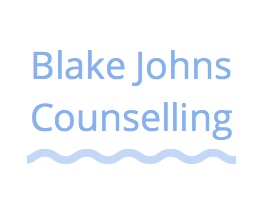About Blake
Margaret River Counselling and Psychotherapy



About Blake
Therapy Style
My style of therapy is truly a legacy of every client I have ever worked with. This has been one of the tremendous privileges and honours of my life. Many of my most inspirational teachers are those who have been impacted by trauma and adversity – all those who courageously went through ‘survival school’ and graduated as ‘survival psychologists’, who moved on to post-traumatic growth to re/discover themselves.
When you are working with me, in a way you’re working with every person I’ve ever worked with. It’s the therapeutic collaboration and exchange with clients that makes this therapy so powerful. Many clients take some sort of comfort and inspiration from knowing that their surviving and overcoming problems greatly contribute to helping others navigate similar problems.
I don’t believe in one-way approaches to psychology where people need to be educated and corrected by their therapist. Every person has their own unique knowledges and abilities that therapists must learn from and adapt their therapy towards. You and I can work together to discover, harness, nourish, and develop those qualities, commitments, values, and abilities that can help you move beyond the problems you’re facing.
This style of therapy stems from Narrative Therapy – a respectful and collaborative therapy directed towards supporting you to be/become the experts in your lives. In short, this is achieved by exploring ‘what happened to you’, rather than ‘what’s wrong with you’, and the skillful use of therapeutic approaches to help you re-author your life. I also integrate other types of therapy that you can read more about here.
Professional accreditation
My professional accreditation is an Accredited Mental Health Social Worker (AMHSW). Like a psychologist, after AMHSWs complete their degree in how problems affect people, clinicians must go through two years of supervision in mental health. This is why both psychologists and AMHSWs are eligible to provide psychological services under Medicare. Personally, I chose my professional pathway due to a more holistic approach to mental illness. My additional degrees and training have also supported me to use holistic, flexible, collaborative, and integrative psychotherapy at the heart of my practice.
Down time
In my down time I love to travel, including van trips down the West coast of Mexico, open ocean surf charters, discovering the world by motorbike, and exploring far flung corners for waves. I don’t consider myself a surfer, more of a ‘frothing man grommet’.
Surfing, travel, mindfulness, and amazing friendships are what cultivates my growth, inspiration, and creativity.
Before becoming a counsellor, I worked in Sumatra as a surf guide and on post-tsunami community development projects.
Pineapple belongs on pizza.
Training and Education
Qualifications
Postgraduate Diploma of Psychotherapy (Non-AQF)
Master of Narrative Therapy and Community Work, 1st Class Hons
Master of Social Work (Qualifying), with Distinction
Bachelor of Social Science
Cert. IV Training and Assessment; Cert. IV Teaching
Professional Certificate of Neurodivergent Affirming Practice
Accreditation:
Accredited Mental Health Social Worker (AMHSW)
Registration:
Positive Behaviour Support Practitioner (NDIS)
Publications:
Johns, B. (2022). Narrative therapy in psychedelic harm reduction: Supporting safety, agency and meaning-making. International Journal of Narrative Therapy and Community Work, (2), pp. 61-71. https://doi.org/10.4320/MCBZ5745
Additional training
- 10 day Vipassana meditation (x3 Bodhi Tree, Lismore)
-
Internal Family Systems Therapy Masterclass (Internal Family Systems Institute)
- Family-Based Treatment for eating disorders (Australia New Zealand Academy of Eating Disorders)
- EMDR Level 1 & 2 (EMDRAA accredited training)
- Trauma, attachment and neuroscience (Bessel van der Kolk)
- Understanding and responding to complex trauma (Rape and Domestic Violence Services)
- Attachment-focused treatment for childhood trauma and abuse (Dan Hughes)
- Body wisdom therapy (Pat Ogden)
- EMDR therapy skills (Jennifer Sweeton)
- Emotional regulation (Carol Bright)
- Drug and alcohol recovery counselling (Gold Coast University Hospital)
- Acceptance and Commitment Therapy 2-day Workshop (Russ Harris)
- Advanced frameworks for domestic violence counselling (Education Centre Against Violence)
- Essential skills in male family violence (Education Centre Against Violence)
- Extensive supervision from clinical psychologists and mental health social workers
